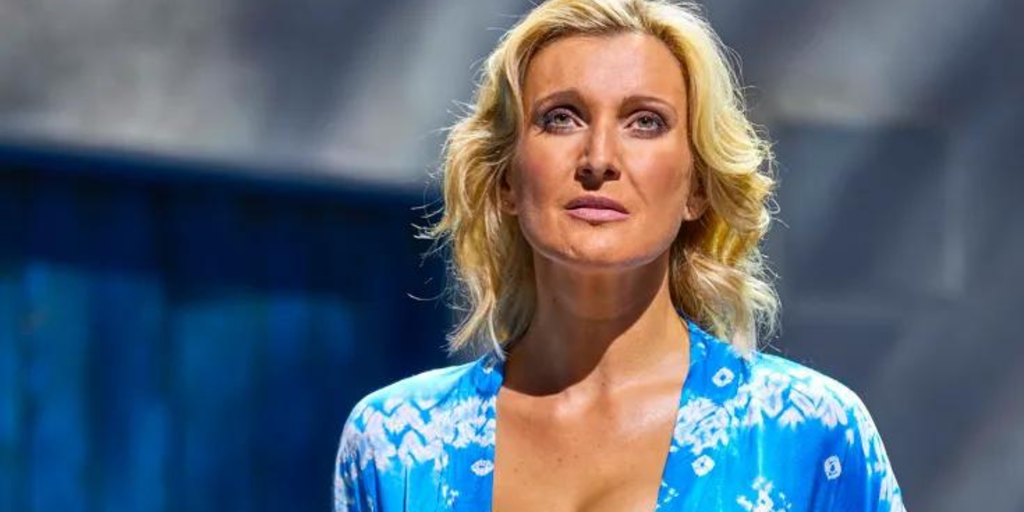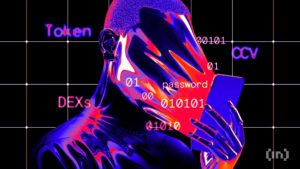‘We Won’t Need Sara’: Actress Learns She’s Been Replaced by AI
10 months ago CryptoExpert
Stage and voice actress Sara Poyzer was unceremoniously informed that she had been replaced by artificial intelligence, the Mamma Mia star said Tuesday.
Poyzer posted the text of an email message she received from an unnamed production company that said her voice services were no longer needed by the BBC as the broadcaster had given permission to use an AI-generated voice instead.
“Sorry for the delay,” the message said. “We have had the approval from [the] BBC to use the AI-generated voice so we won’t need Sara anymore.”
“Sobering,” she commented with a sad face emoji. She tagged the Twitter accounts for the BBC Arts channel and Equity, the UK trade union representing professional performers and other creative workers.
Fans and fellow actors responded to Poyzer’s plight with a mix of sympathy and anger.
“It’s happened with myself and art projects many times now,” artist and media personality Nathan Wyburn responded on Twitter. “Sorry this has happened to you!”
“This is absolutely awful,” composer Rob Lord added. “Something needs to be done about this ASAP starting with them hiring you for this job!”
Representatives for Poyzer did not immediately respond to Decrypt’s request for comment. For its part, the BBC confirmed to Deadline that it would be using AI to narrate a ”highly sensitive documentary” for which a contributor “is nearing the end of life and is now unable to speak.”
It doesn’t appear that Poyzer is the contributor in question, and it’s unclear why her voice talents were initially sought.
“We have been working closely with their family to explore how we might best represent the contributor’s voice at the end of the film when words they have written are read out,” the BBC statement continued. “In these very particular circumstances and with the family’s wishes in mind, we have agreed to use AI for a brief section to recreate a voice which can no longer be heard.”
The broadcaster said the use of AI would be prominently disclosed when it appears in the film.
This controversy is not new for the BBC, which acknowleeged on Tuesday that it had used generative AI to create marketing images for the new season of Doctor Who.
“We followed all BBC editorial compliance processes, and the final text was verified and signed off by a member of the marketing team before it was sent,” a statement from the BBC read, adding, “We have no plans to do this again to promote Doctor Who.”
Despite the BBC’s contrition over the use of AI in Doctor Who, the network has not changed its overal stance on the use of generative AI—inaction decried by voice talent agency Voice Squad, which represents Poyzer.
“We were very disappointed to receive the production company’s response, particularly as it’s a BBC project,” Voice Squad told the Daily Mail. “The BBC have always stood for quality in their factual and drama broadcasting.
“As a voiceover agency, we feel that AI is a danger to the whole industry, removing work from artists who have trained for three years at drama school and spent many years honing their craft,” the company added.
The use of artificial intelligence to replace human talent was one of the key sticking points of the months-long WGA and SAG-AFTRA strikes last year after the technology advanced and spread rapidly following the release of the public version of ChatGPT by OpenAI in late 2022.
Fast forward to 2024, and AI has been widely tapped to create AI-generated images, music, video, and audio. AI tools like Runway, Murf, and OpenAI’s Sora have revolutionized content creation. It has become easier to use technology to create hours works that used to take humans days or weeks to create, whether scripts, books, songs, images, or videos.
Yesterday, Open AI published examples of voice cloning enabled by its new Voice Engine, which needs only 15 seconds of recorded speech to generate a convincing copy.
Edited by Ryan Ozawa.













